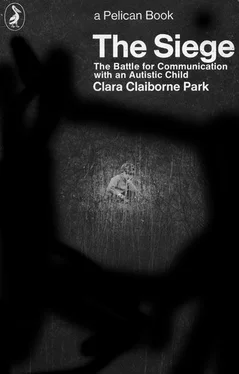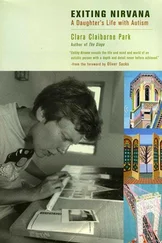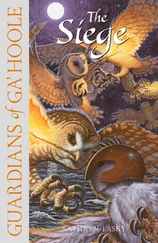Recently Elly spent more than an hour making a series of pictures — twenty-one sheets of carefully crayoned paper, each displaying a large numeral, starting, of course, with zero. Upon the zero, inside it, a small figure sits. She is standing against the one. The numbers continue to twenty. In each of them the same figure stands or climbs or sits or hangs. Sometimes the figure is ‘Elly’, sometimes ‘girl’. Elly enjoys talking about them; she explains with delight, ‘Girl hang-uh seven.’ (The hanging figure’s hair, obeying gravity, hangs straight down.)
A new series carries the process one step further. The body has disappeared and the girl has merged completely into the numeral. Only her schematic head remains.
Girl into number. Elly, I fear, is a natural Platonist. Though she no longer lives in it, she prefers a world stripped bare of the adventitious accretions that to ordinary minds make it interesting and precious — a world reduced to its essentials of pattern, shape, and number. That preference can of course be seen, for her as for Plato, as a retreat, an abandonment of the real, disorderly world which causes anxiety and pain. Yet sometimes I think that to interpret it so is to miss the point. That golden baby circling its spot laughed aloud with pleasure. Elly’s delight is spontaneous and free. If it seems unnatural, that is because it is uncommon in young children. Joy cannot in itself be unnatural or unhealthy. Few of us share the joy Pythagoras musthave felt in his theorem, but we can all recognize it. Order in the world is something to take joy in — on this theologians and mathematicians agree. Elly’s joy is of extreme simplicity compared to theirs, yet I think it is of the same kind. I cannot be sorry it exists, only that it comes so much easier than the other, more human kinds of pleasure.
Elly herself can end this chapter better than I can. We shall watch her as she plays with her new map, the one she insisted on getting as soon as she saw it in the college office. I saw no reason to bring it home, as she already had one posted, but we did, and with uncharacteristic effort she has found some tape and has put it up near the other. ‘42a,’ she says. ‘42a this map. This? This?’ I do not understand, but her insistence makes me examine the map and I perceive what evidently she has known all along. The maps look identical but they are not. Five or six buildings, perhaps, out of a hundred have been altered or replaced, necessitating a revised legend; 42a is a new addition.
Elly continues: ‘Zero heating plant?’ I contradict; understanding her to mean ‘no heating plant’, I reassure her. ‘One heating plant, there’s the heating plant.’ But she goes on saying it. I do not understand why until she takes my pencil and herself writes in a zero by the picture of the building. Then I see that all the other buildings are numbered. Only the heating plant is not. ‘They forgot,’ I say, falling into one of our familiar frames. ‘They forgot!’ crows Elly, over and over again, eight, ten times in succession. I hear her, but my eyes are elsewhere, and I do not notice what she is doing. When I look up I see that she is laboriously printing, as the first item in the legend O HEATING PLANT. She miscopies, but she does not lose her cool. ‘They forgot!’ She erases, corrects. ‘Forgot!’ And we go down to breakfast, after one half hour of happy activity.
After breakfast she returns to the map. Fascinated, she enjoys it, singing a little song. Now and then she tenses, shivers in a paroxysm of pleased excitement, but mostly she is relaxed, absorbed in the delights of notation, enjoying the relation between abstraction and reality. ‘Walk downtown?’ And in her mind she does. ‘Don’s cross-uh street! Buy six M-uh-M? Buy four Necco? Buy seven shoestring candy? Buy five gumdrop! Little gumdrop. Get out-uh candy store. Go bakery. Buy-uh two cookie. Get-uh one big cake. Get-uh lot-uh cupcake. Go drugstore. Get a tempacan [temperature = thermometer]. Elly too sick [she is laughing]. Buy three new bottle. No. Zero bottle. Buy eight candy box. Buy nine new gumdrop. Buy ten new candy box. Buy eleven star candy. Buy fourteen new Necco. Lot-uh new M-uh-M?’
The hairs of her head are numbered.
Elly has been under siege now for six and a half years. What is she like today?
Someone who saw her now for the first time and had no knowledge of her history would probably not think her autistic at all. Speech penetrates to the ears that for so long seemed not to hear; the eyes that saw not can now register the full variety of the world. The autistic isolation itself is much attenuated. Seeing her laughing and squealing with her sisters or enjoying the marshmallow game with her father, an observer might remark the immaturity of her affection but he would not think of her as a child particularly withdrawn. It might even be possible for him to hear her sense of community break through into words, as when, taking a hand mirror, she snuggles close, contemplates our two images in the mirror, and says ‘Mamma love you!’
If he came when I was out he could see how she relates to someone who is not a member of the family — to the warm, understanding woman whose help makes it possible for me to get away at all. Mrs Gerry’s best qualifications are her own six children and eighteen grandchildren. She brings Elly surprises, lets her watch while she mixes and bakes, persuades her to pull her boots on, gives her firm and loving discipline when she gets out of line. Elly goes to stores with her, visits her at home. ‘Mrs Gerry ha’ colour TV!’ Like the live-in mother’s-helpers I can now do without, Mrs Gerry is another focus of Elly’s increasing capacity for affection.
One no longer has to be a miracle worker to reach her; any friendly person who is at home with two-year-olds can do it. If you were to come to our house and wanted to get to know Elly,it could easily be done. She would indeed pay no attention to you at first, as she has come to expect that adults begin by talking in ways she cannot understand. So I would put her hand on yours to bring you into contact, [33] I remember the question of a psychologist-friend who came to visit: ‘Did the psychiatrist say you could do that?’ I said I hadn’t asked him, but that when he saw Elly he seemed very pleased with her progress. ‘It certainly is an unusual arrangement,’ she said.
tell her your name, and from then on it would be up to you. If you roughhoused with her, or drew pictures or provided candy or took her for a ride, she would ‘relate’ to you as satisfactorily as you please, smiling, laughing, taking part in your games, even talking about them. If, however, you asked her hard questions, like what her name is, or talked in language above a three-year-old’s comprehension, she would lose interest. She would ignore you again — not look through you or beyond you, as long ago, but ignore you as any child ignores an uncomprehending adult.
If you were then to turn your attention to me and we were to talk at any length she would become restive, then demanding. ‘Mama talk !’ she would complain, but her annoyance would go no farther into speech than that. It would express itself in undifferentiated squeals and creaky-door noises, in a crescendo of anxious, edgy (but still ludicrously accurate) evocations of rock-and-roll, in tense and jerky dancing up and down, in awkward imitations of falling down — perhaps if it all went on too long, in crying. I would either terminate the conversation then or take a firm stand: ‘Sometimes I talk to you, sometimes I talk to other people.’ Elly would then retire, probably to her bed, and bawl, and after a while she would stop and I would hope everything was all right and that this experience would be, not a trauma, but in fact what I wished it — one more infinitesimal step towards the realization that she cannot totally possess even those whom she loves best.
Читать дальше












